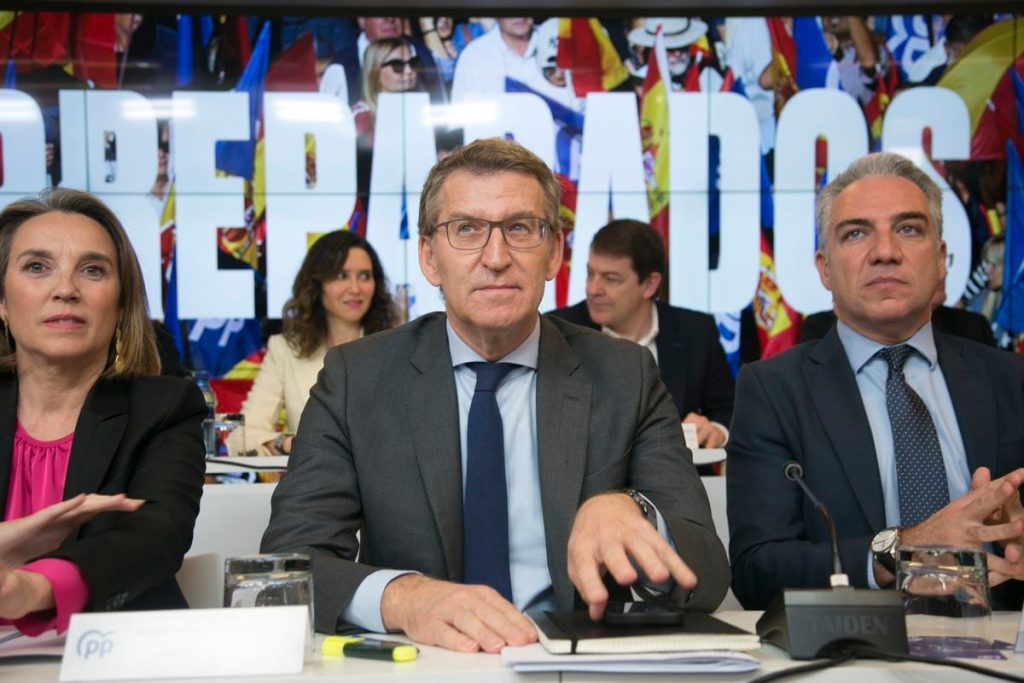Today, the main political news revolves around the plenary session of the Senate, where the Partido Popular is expected to use its absolute majority to launch an offensive against the Government. Senators are set to vote in favor of reprimanding President Pedro Sánchez and Minister of Presidency and Justice Félix Bolaños. Neither of them will be present during the session: Sánchez is on a tour of the Middle East with a visit to Qatar, while Bolaños will be meeting with prosecutor associations. Additionally, three electoral campaigns are underway (Basque, Catalan, and European elections) with events organized by the main political parties.
In the Senate plenary, the opposition parties will criticize the Government’s management of the pandemic, the economic crisis, and the policy on refugees. The Partido Popular aims to hold the Government accountable for these issues, using its majority to push through reprimands against key figures. Meanwhile, President Sánchez continues his international tour, maintaining a presence in the Middle East while his party faces challenges at home. The ongoing electoral campaigns in various regions add complexity to the political landscape, with parties jockeying for position ahead of upcoming elections.
The use of the Senate as a platform for political attacks has become a common strategy in recent times, with the Partido Popular leveraging its position to criticize and challenge the ruling party. Despite the absence of key government figures during the Senate session, the opposition parties are determined to make their voices heard and highlight what they perceive as shortcomings in the current administration. As the political climate heats up with the upcoming elections, the pressure on the Government to address these issues intensifies.
The timing of the Senate plenary session coincides with President Sánchez’s visit to Qatar, where he is engaging in diplomatic relations and promoting economic ties with the Middle East. The Government’s focus on international affairs is juxtaposed with domestic political challenges, creating a complex dynamic in which the administration must balance its attention between external and internal issues. The Senate’s role as a battleground for political disputes underscores the contentious nature of Spanish politics, with conflicting interests and agendas driving the debate in both chambers of government.
Overall, the current political landscape in Spain is characterized by tensions between the ruling party and the opposition, as each side seeks to advance its agenda and gain an advantage in the upcoming elections. The Senate plenary session serves as a stage for these conflicts to play out, with the Partido Popular utilizing its majority to challenge the Government and push for accountability on various issues. While the absence of key figures during the session may impact the tone of the debate, the opposition remains committed to holding the Government accountable and highlighting its perceived failures. As the electoral campaigns continue in different regions, the political climate in Spain remains dynamic and unpredictable, with various parties vying for power and influence in the months ahead.


